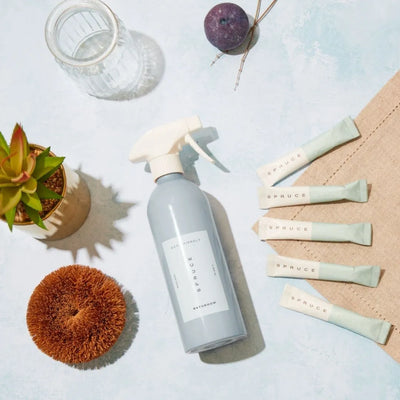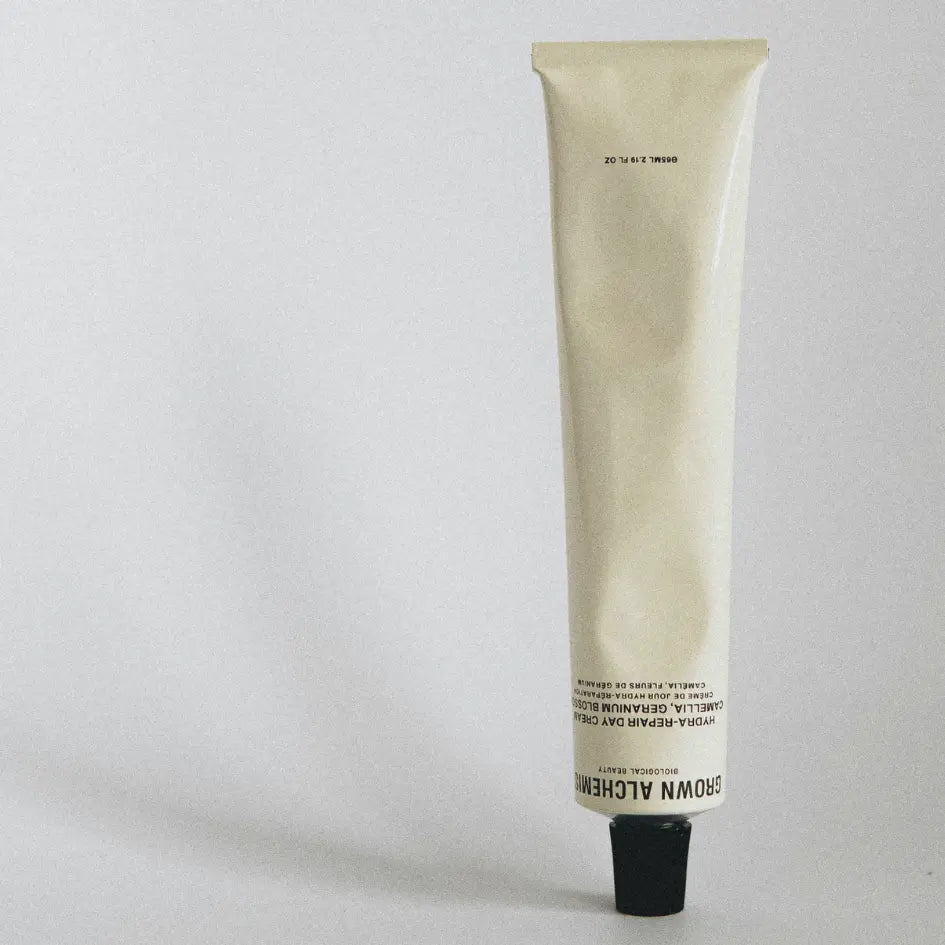Spruce
Our ratings are based on a scale from 1 (Avoid) to 5 (Top Choice).
See how we rate.
The Shifting Gaia rating evaluates brands based on sustainable practices, ingredients and materials, and social responsibility, among others. Below are a few factors influencing this brand's score:
overview
about
Spruce makes refillable, concentrated cleaning products with a heavy emphasis on clean, sustainable formulations. Highlights
• Sustainable ingredient sourcing
• Entirely plastic-free company
• B-Corp certified
• Vegan and cruelty-free
• Refill program
• Waterless alternatives to traditional cleaning products
sustainability
details:
Packaging
All refill packs are 100% plastic-free and made of home- and industrial-compostable paper that biodegrades into biomass within six months. The long-lasting “Eternity” bottles are lightweight aluminum (infinitely recyclable). Spruce uses unbranded boxes made of recycled, FSC-certified cardboard, printed with biodegradable, vegan-friendly ink and sealed with paper tape (no plastic), to ensure all packaging is easily recyclable. They also avoid excess fillers or inserts.
Ingredient Sustainability
Spruce's product ingredients are overwhelmingly plant-based, renewable, and designed for biodegradability. Our review found a consistent use of plant-derived surfactants and natural materials with minimal environmental footprint. For example, Spruce's cleaning sprays use sugar-derived and coconut-based surfactants (e.g. decyl glucoside and sodium coco sulfate) along with food-grade citric acid, sodium bicarbonate, and natural preservatives (potassium sorbate, sodium benzoate). These ingredients are readily biodegradable and free of petroleum derivatives. The formulas rely on organic essential oils for fragrance and antimicrobial properties. Notably, Spruce completely avoids palm oil (a common cleaning ingredient).
Even accessory materials are sustainable: Spruce's Eco Sponges are made from 100% plant-based cellulose with no synthetic fibers, making them fully compostable at end-of-life
Energy Use and Footprint
A core tenet of Spruce's model is “shipping no water.” Their products are sold as concentrates (small dry refill packets or sheets) that customers mix with tap water at home, which reduces weight and significantly cuts transport emissions.
Spruce has not publicly disclosed specific data on factory energy sources or total carbon emissions, but as a young company they demonstrate emissions reduction through design. However, their 2023 Impact Report provides quantitative evidence of footprint reduction and highlights that producing and sourcing locally optimizes efficiency and minimizes waste in all processes.
Waste Management
The company reports achieving zero waste in its production lines, meaning no manufacturing or assembly waste is sent to landfills or incineration. They have eliminated production scraps and redundant materials.
The company's Plastic Pledge extends to operations as well: Spruce uses no single-use plastics anywhere in its supply chain or facilities. Spruce even considers waste beyond its own footprint: via a partnership with the social enterprise Plastic Bank, the company funds the removal of 25 ocean-bound plastic bottles for every cleaning kit sold.
Business Model
Spruce's entire business model is built around mindful consumption and long-term sustainability, rather than encouraging churn or overconsumption. The brand offers a “refill philosophy.” Customers purchase durable aluminum spray bottles once, then continue with refill sachets. This inherently promotes product re-use and discourages single-use mindsets. They do offer subscriptions and bundle discounts, but these are positioned to add convenience and savings for regular users, not to encourage buying more than necessary.
non-toxic
details:
Spruce's products are formulated to be safe for human use, avoiding virtually all chemicals of concern commonly found in mainstream cleaning products. Across the sampled product ingredients, Spruce uses benign substances like plant-based surfactants (from coconut and sugars), baking soda, and food-grade preservatives. The brand explicitly confirms that its cleaners contain no parabens, phthalates, phosphates, ammonia, chlorine bleach, formaldehyde-releasers, or synthetic fragrances, among other toxins.
Spruce fragrances its products only with natural essential oils (e.g. geranium, eucalyptus, peppermint) instead of synthetic fragrance oils.
Spruce notes that all ingredients score top marks on the Environmental Working Group (EWG) database and are assessed as low-hazard by the European Chemicals Agency.
social responsibility
details:
The company is manufacturing locally in the UK, which means production staff operate under UK/EU labor laws (providing baseline protections for wages, working hours, and workplace safety). As part of its social mission, Spruce achieved Certified B Corporation status in early 2022. B Corp certification requires meeting rigorous standards for worker treatment, accountability, and social impact.
Spruce is firmly cruelty-free and vegan in both practice and verification. All Spruce products are certified by the Vegan Society.
A standout initiative is Spruce's partnership with Plastic Bank, a social enterprise that empowers people in impoverished coastal regions to earn income by collecting plastic waste. For every Spruce cleaning kit sold, the company finances the removal of 25 ocean-bound plastic bottles through Plastic Bank's programs.



